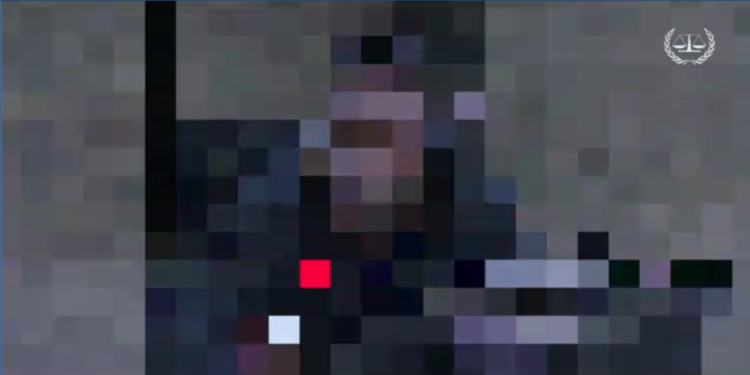By Tom Maliti
A former fighter with the Lord’s Resistance Army (LRA) told the International Criminal Court (ICC) that an Acholi chief took him back to the rebel group when he tried escaping from the LRA 15 years ago.
Witness D-79 told the court on Monday, October 29 that to date he remains “extremely unhappy” with Rwot Oywak, the chief of the Acholi in Koyo Lalogi, because Rwot Oywak took him back to the LRA and promised he would return for him but Rwot Oywak never did. Witness D-79 said instead he was severely beaten for attempting to escape from the group.
Rwot Oywak testified as a prosecution witness in June last year. He gave testimony about the LRA attack on the Pajule camp for internally displaced people (IDP) in October 2003, one of the attacks that Dominic Ongwen, a former LRA commander, is on trial for at the ICC.
Apart from the Pajule attack, Ongwen has also been charged for his alleged role in attacks on three other IDP camps in 2004. He is also facing charges for his alleged role in sexual and gender-based crimes and conscripting child soldiers. Ongwen has been charged with a total of 70 counts of war crimes and crimes against humanity.
During Rwot Oywak’s testimony in June last year the defense challenged his credibility as a witness, questioning him about whether he was a collaborator with the LRA and whether the LRA treated him with deference when the group abducted people from the Pajule IDP camp.
On Monday, October 29, Witness D-79 told the court he first tried to escape the LRA in 2003 when his group was in Pader district in an area called Koyo Lalogi. He said that shortly after he escaped, he saw a white car and went to it. Witness D-79 said Rwot Oywak was in the car and Rwot Oywak asked him what he wanted.
Witness D-79 said Rwot Oywak then told him, “Let’s first go back (to the LRA) and then when we are coming back, we will bring you back (to Koyo Lalogi).” Witness D-79 said he was taken to his commander, Charles Tabu Ley, and, in front of Tabu Ley, he was caned 170 times.
“It was not easy. After that I had to put on a skirt for about a month because my buttocks were swollen, and I could not put on a trouser,” said Witness D-79.
“If I was to compare him (Rwot Oywak) with anyone I would compare him with Joseph Kony because he did not think of my life at all,” said Witness D-79 when he was asked how he felt after Rwot Oywak returned him to the LRA.
During his testimony on October 29, Witness D-79 testified about his abduction in 1995, his training soon after his abduction and trekking to Sudan where the LRA had a base. He also testified about escaping the LRA for a second time in 2006 and succeeding in that escape.
Some of Witness D-79’s testimony was closed to the public because he was testifying under in-court protective measures. This included his face being distorted in public broadcasts of his testimony. Witness D-79 also had a legal adviser, Robert Andreas Kaarls, who was to guide Witness D-79 whenever his testimony could be self-incriminating.
Presiding Judge Bertram Schmitt also assured Witness D-79 that the court would not prosecute him for any testimony he gave which was self-incriminating so long as he told the truth. Judge Schmitt said these assurances were given under Rule 74 of the ICC Rules of Procedure and Evidence.
Prosecutor Shkelzen Zeneli, while cross-examining Witness D-79 on October 29, asked him whether he knew Ongwen in October 2003. This is around the time the attack on the Pajule IDP camp that Ongwen has been charged with took place.
“Yes, I knew him,” replied Witness D-79.
“He was the second in command of the Sinia Brigade?” asked Zeneli.
“At the time he was acting but he was still under the leadership of Buk Abudema,” answered Witness D-79.
“And when Buk got sick Dominic took over from him?” asked Zeneli.
“No. He (Buk Abudema) passed away then he was given the leadership,” Witness D-79 said.
“And when you say he was given the leadership you mean Dominic Ongwen?” asked Zeneli.
“That’s correct,” said Witness D-79.
He concluded his testimony on October 29. The next witness was D-105 who testified on November 1.
This article was first published on the International Justice Monitor







